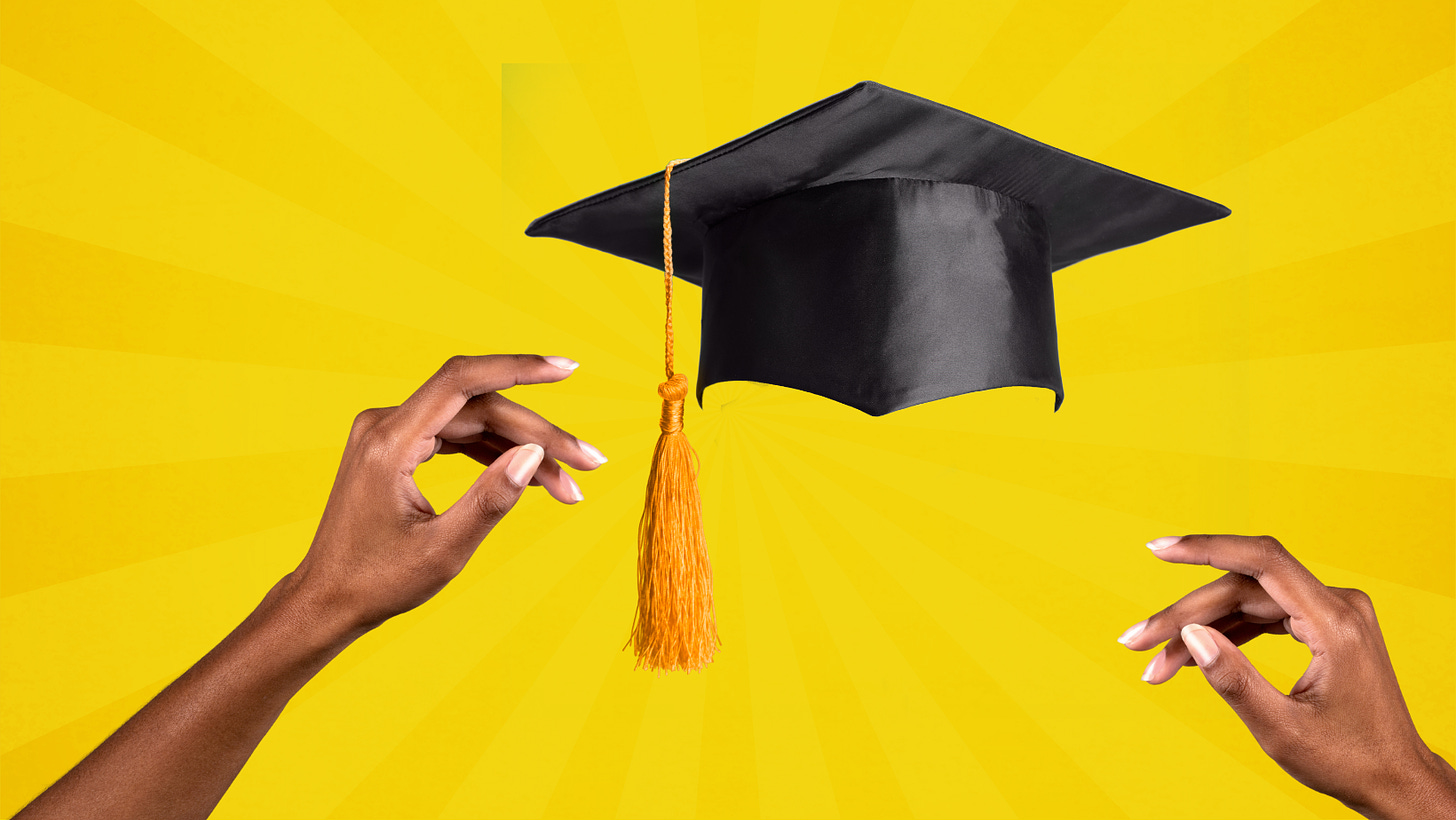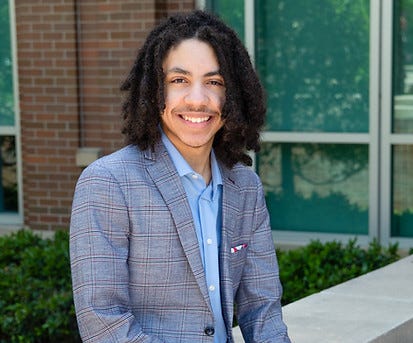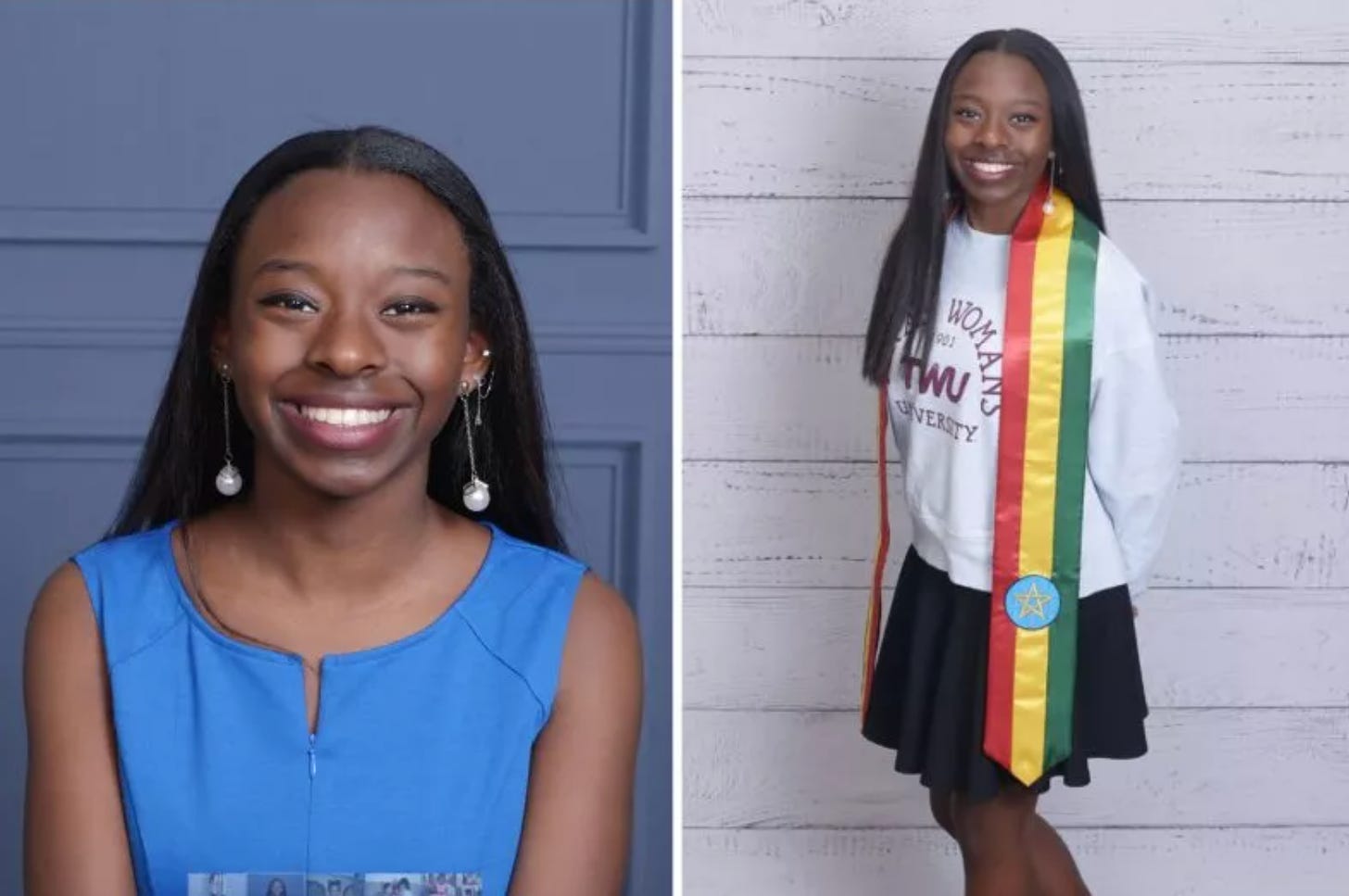They set high expectations. Their kids exceed them.
The Taylor-Schlitz family makes we wonder how many talented and capable young people are victim to the belief gap
Four years ago, I interviewed an impressive young man who, at 16 years old, was already the CEO of a start-up. At 17, he earned an MBA, and at 18, he entered a Ph.D program.
Ian Schultz, a total wunderkind.
Something about his affect was different. He's bright, cheerful, and unconventional. He looked and sounded like someone who hasn't had to live within the boundaries and limitations of structured educational environments.
Here he is:
I also met his older sister, His Haley.
She graduated high school at age 13, and a year later, several universities accepted her into their undergraduate programs, including Xavier University's pre-med program, Oklahoma State, Spelman, U of Texas, Grambling, Tuskegee, and Bard.
She became the youngest graduate on record from Texas Woman's University.
Nine law schools accepted her at age 16.
Here she is, taking her oath for the Minnesota bar:
Meeting Ian and Haley led to an obvious question.
What was going on in their house to produce these outstanding young people? The answer was more interesting than what I've told you so far.
As it turns out, their mother, Dr. Myiesha Taylor, had a storied upbringing.
An unidentified person shot her father three times when she was 18, and even though he made it to the hospital, he died after not getting the timely care he needed.
"In trauma, you have a golden hour where if you get the person to the hospital and in the O.R. within an hour or so, their chances of survival increase dramatically. Well, my father didn't have that opportunity," she told an interviewer.
That episode solidified her commitment to entering emergency medicine.
Black emergency medical doctors make up only 5% of the field.
I knew in my heart. I think that these schools would never see my Children for their potential. They would see them as problems. Instead of future problem solvers, and they were, they were the way the curriculum was, especially in social studies, they were trying to break my daughter's spirit and that was unacceptable to me.
Did I mention that Doc McStuffins' creator named the character's mother after Dr. Taylor?
Dr. Taylor's story made her vigilant about education. For Haley, that meant attending seven schools in five years and eventually leaving conventional schooling to be homeschooled by her father, William, with much influence from her mother.
They wrote a book about it, The Homeschool Alternative: Incorporating a Homeschool Mindset for the Benefit of Black Children in America.
I interviewed the parents and found in them every reason why their children should be successful. They have the highest expectations I've ever seen. If a thing can be achieved, the presumption is that their children will do it.
But all of this success raised a question for me that would explain away their success story.
What if Ian and Haley were gifted kids, and because of that, what worked to educate them wouldn't work for other young people?
Hana is our youngest. She's adopted from Ethiopia. It looks like she was born early. She had multiple medical issues that we had to overcome and even a slight learning difference where she had an IEP, um, an early childhood intervention to a point where she learn and communicate at the level that was expected of her age.
Now, Hannah is 13 years old, she's graduated from high school, and she is a sophomore at TWU, which is Texas Women's University. So this is not a genetic thing because Hannah doesn't share our DNA, so it has to be entirely environmental. Yes, we have Haley and Ian, who are our biological genetic children, connected children. Hannah isn't, and she's doing the same thing on the same path.
As evidence goes, that's pretty convincing.
Here is Hana:
Hana will graduate with a Bachelor's in sociology this May and start a Ph.D. program at Texas Women's University this fall.
She is 16 years old.
The Taylor-Schlitz family raises questions and answers them. What if the trauma of losing her father had stalled Dr. Taylor’s ambition? What if Haley had stayed in one of those seven schools her mother pulled her out of? What if Ian had endured the limits of conventional schooling? What if Hana hadn’t been adopted into a family where achievement is a given?
What if countless gifted or gifted-possible young Black people languish in places that cannot give their potential the attention it deserves?
How can we ensure every child who needs an unconventional education can get one?
Like the Taylor-Schlitz family, we need to expect more from ourselves, our young people, and all the systems that serve them.
Here’s the interview:







